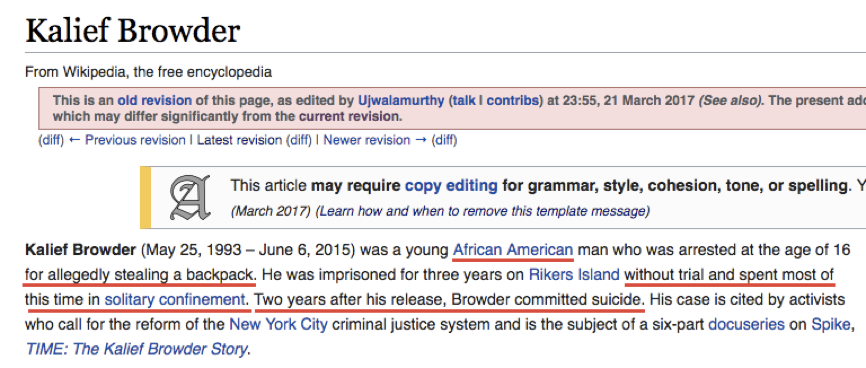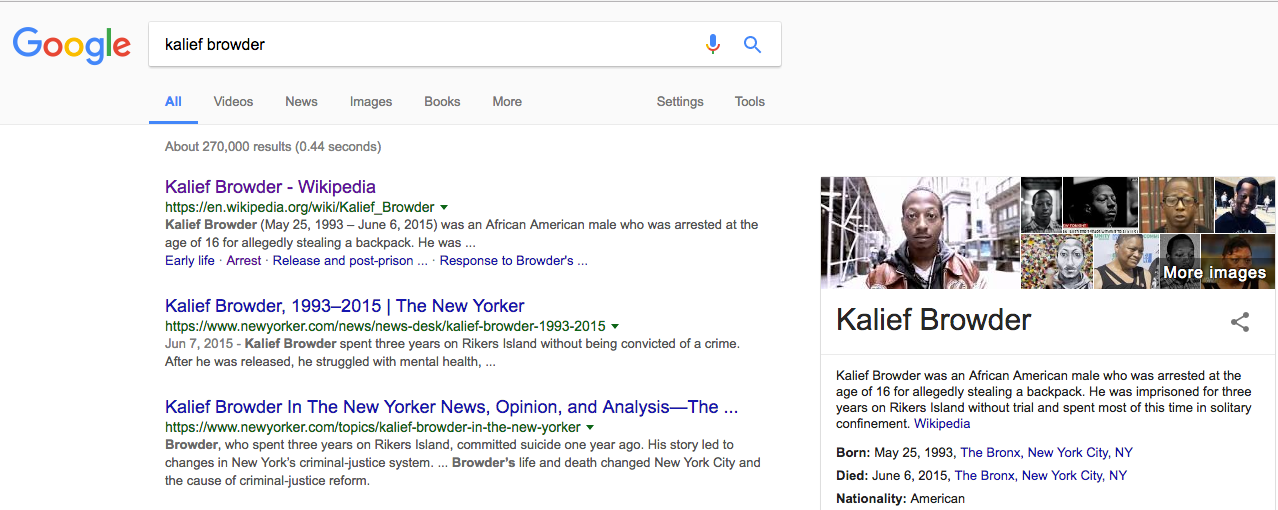Last month, I joined faculty at Howard University’s Center for Excellence in Teaching, Learning, and Assessment (CETLA) to encourage attendees to teach with Wikipedia. When I met Dr. Tracy Perkins at this year’s American Sociological Association’s annual meeting, I was thrilled when I learned she teaches at Howard and would organize a faculty workshop about Wikipedia assignments.
Howard University is consistently ranked highly among historically black colleges and universities (HBCUs), higher education institutions long known for championing and admitting students of all races. At Wiki Education, students attending HBCUs and participating in courses about racial diversity have added high quality information for Wikipedia’s readers. Students in classes or at institutions focusing on racial diversity often provide a new voice to Wikipedia, making important changes to articles’ meanings.
Take Dr. Fabian Neuner’s Black Lives and Deaths course at the University of Michigan this past spring 2017 term. Students made significant changes to articles about criminal stereotyping of African Americans, reparations for slavery, and the War on Drugs as it relates to race. Student editor User:Ujwalamurthy selected Wikipedia’s article about Kalief Browder, increasing the content in the article by a factor of eight—or 8,000 words! This is a significant expansion by any measure, but it’s outstanding for a first-time editor.
If you searched for information about Kalief Browder on March 3, 2017, you would learn the tragic tale of a young teenager who was arrested in New York and spent three years in prison without a conviction. Right there in the Wikipedia lead, you’d learn that his imprisonment and subsequent death have incited activists to demand criminal justice reform.

But that doesn’t tell the whole story, and that’s where the power of Wikipedia classroom assignments can come in. See the student editor’s impact of adding just 26 words to the lead section:

The student editor modified “young man” with “African American” in the first sentence, a crucial fact about Kalief Browder when you learn about the Black Lives Matter activism his case has ignited.
After mention of his arrest, the student editor added it was on suspicion of stealing a backpack. The fact that it was minor crime likely leads readers to question immediately how an alleged backpack theft could lead to three years’ imprisonment without conviction — and again makes it more obvious why this case has generated activism.
The addition of another short phrase makes it even clearer: Kalief Browder spent the majority of his three years in prison in solitary confinement. Many psychologists argue that solitary confinement evokes such mental anguish in its victims that we should consider it cruel and unusual punishment, made illegal in the United States by the 8th Amendment. Highlighting this fact in the lead section of Kalief Browder’s Wikipedia article draws even more attention to why activists objected to his imprisonment.
Upon comparison, a single replaced word jumped out to me that signified the impact of these edits: the student editor changed one word in this opening paragraph to emphasize Kalief Browder, a sixteen-year-old boy who was imprisoned for three years, was imprisoned not without conviction but without trial. This word brings not only specificity into the article’s introduction, but it immediately points to why activists argue there was injustice in this case.
Lastly, the student brought the most harrowing piece of information from the body of the article to this summary: “Two years after his release, Browder committed suicide.”
Since this incredible change to Kalief Browder’s Wikipedia article in late March 2017, it has received 650,000 page views. In half a year, that’s 650,000 people who came to Wikipedia asking questions about Kalief Browder’s imprisonment and death walking away with a more complete representation of the story. And when we’re talking about Wikipedia’s reach to the world’s curious citizens, let’s not forget the impact of search engines like Google. Pictured below is today’s Google results, where searchers can see the updated lead from Kalief Browder’s Wikipedia article right there in the Google Knowledge Graph, in the right-hand sidebar.

How many people use a search engine like Google when looking for information on the internet? How many activists? Policymakers? Young African Americans? Police officers?
Wikipedia is a neutral, fact-based encyclopedia, but it is only as good as the facts that are added to it. When an article like the biography of Kalief Browder doesn’t share all the facts, it can lead to an incomplete picture of reality. Kalief Browder’s legacy deserves wide readership of a complete narrative—and I couldn’t be more moved that one of our student editors in the Classroom Program has helped honor that legacy.
This is why we need more diverse voices and perspectives on Wikipedia, and I’m thrilled to support students at HBCUs like Howard University so they can learn how to add their voices to Wikipedia. Wiki Education is actively seeking more faculty who want to teach with Wikipedia, to provide a more complete description of their discipline. To join us, visit wikiedu.org/teach-with-wikipedia or email us at contact@wikiedu.org.

Fascinating and thought-provoking post. Conveys the critical important of factual completeness in Wikipedia entries. A job exceedingly well done by a Howard student.